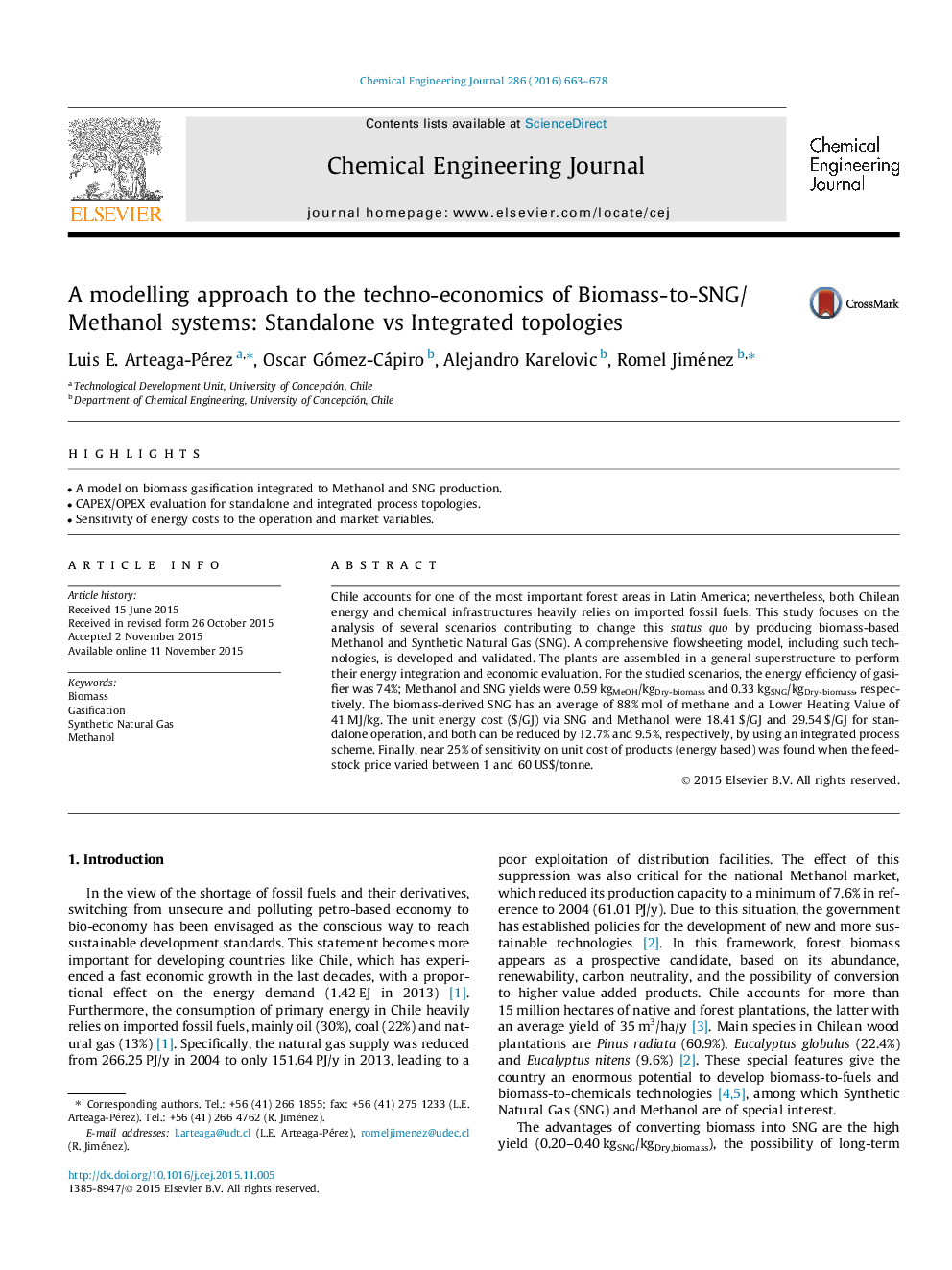| Article ID | Journal | Published Year | Pages | File Type |
|---|---|---|---|---|
| 6582840 | Chemical Engineering Journal | 2016 | 16 Pages |
Abstract
Chile accounts for one of the most important forest areas in Latin America; nevertheless, both Chilean energy and chemical infrastructures heavily relies on imported fossil fuels. This study focuses on the analysis of several scenarios contributing to change this status quo by producing biomass-based Methanol and Synthetic Natural Gas (SNG). A comprehensive flowsheeting model, including such technologies, is developed and validated. The plants are assembled in a general superstructure to perform their energy integration and economic evaluation. For the studied scenarios, the energy efficiency of gasifier was 74%; Methanol and SNG yields were 0.59Â kgMeOH/kgDry-biomass and 0.33Â kgSNG/kgDry-biomass, respectively. The biomass-derived SNG has an average of 88%Â mol of methane and a Lower Heating Value of 41Â MJ/kg. The unit energy cost ($/GJ) via SNG and Methanol were 18.41Â $/GJ and 29.54Â $/GJ for standalone operation, and both can be reduced by 12.7% and 9.5%, respectively, by using an integrated process scheme. Finally, near 25% of sensitivity on unit cost of products (energy based) was found when the feedstock price varied between 1 and 60Â US$/tonne.
Related Topics
Physical Sciences and Engineering
Chemical Engineering
Chemical Engineering (General)
Authors
Luis E. Arteaga-Pérez, Oscar Gómez-Cápiro, Alejandro Karelovic, Romel Jiménez,
